Understanding the Value of Wastewater: A Vital Resource
Written on
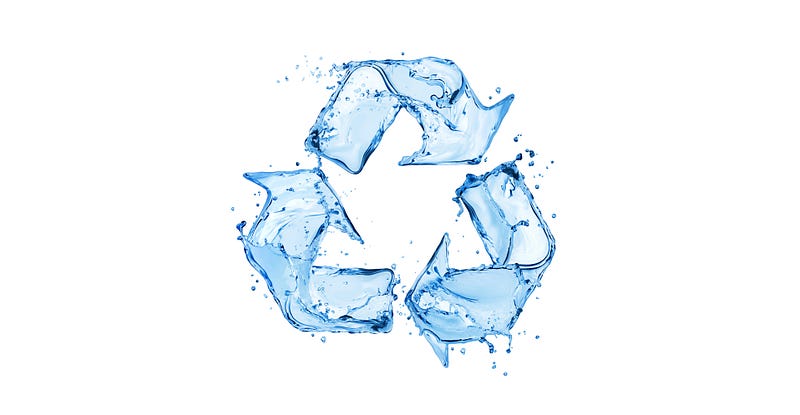
Credit: This article is inspired by the scientific work “Towards the Implementation of Circular Economy in the Wastewater Sector: Challenges and Opportunities” by Sonia Guerra-Rodríguez et al. (Full citation and link available at the end of this article).
In light of recent heatwaves, the significance of water for survival has been starkly highlighted, revealing that fresh water is not always readily available. Water is crucial for all life forms on Earth, making its accessibility vital. In fact, the United Nations General Assembly recognized access to clean water as a human right in 2010.
Despite the essential nature of water for human survival, our water resources have faced significant neglect, particularly over the last century. This neglect stems largely from extensive industrial water use, a rapidly growing population, over-extraction of natural resources, and pollution, all of which have contributed to the diminishing supply of clean water and heightened water scarcity.
To tackle this pressing issue, one of the 17 UN Sustainable Development Goals (SDGs) focuses on ensuring clean water and sanitation. These goals seek to protect the planet, eliminate poverty, and allow everyone to enjoy peace and prosperity by 2030. One target within these goals emphasizes enhancing water-use efficiency.
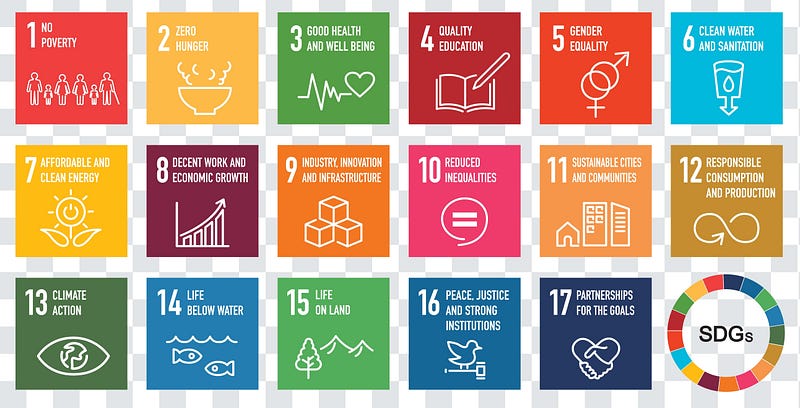
Reusing water presents a significant opportunity to improve water-use efficiency. At a recent Water and Waste Management Conference in Thailand, I learned from Vikas Brahmavar that there is a distinction between wastewater and wasted water. The term "wastewater" often conveys a sense of disposal, while in reality, wastewater holds substantial potential for reuse.
A staggering 80% of water is wasted, with that same percentage of wastewater being released without any treatment. The necessity of reusing wastewater is particularly evident in regions facing natural water shortages. Beyond the theoretical benefits of supporting the Sustainable Development Goal for clean water and sanitation, the practical advantages include alleviating water scarcity. Here are three compelling reasons why wastewater should be viewed as a valuable resource:
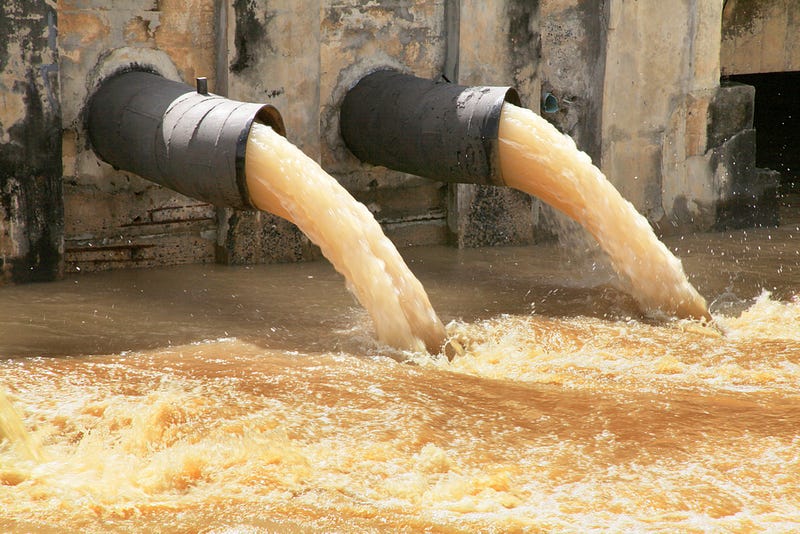
Reducing Dependence on Natural Water Sources
The first reason wastewater is invaluable is that it helps to lessen our reliance on natural water sources like lakes, rivers, and groundwater. Given the increasing frequency of droughts, ensuring that clean water remains accessible for both humans and ecosystems is critical.
Purifying wastewater can help reduce the demand for natural water. Although it may not always be safe to drink, treated wastewater can still serve agricultural, industrial, environmental, and recreational needs.
However, it’s crucial to recognize that even purified wastewater may still contain pollutants, including:
- Illness-causing microorganisms (e.g., bacteria)
- Antibiotic-resistant genes
- Pharmaceuticals
- Disinfectants
- Nanomaterials (e.g., nanoplastics)
- Heavy metals
- Micropollutants
Exposure to contaminated water—whether through ingestion, consumption of affected crops, or direct contact—can lead to health issues for both humans and other living organisms. To mitigate this risk, it is essential to prevent pollutants from entering wastewater systems in the first place.
Utilizing Sewage Sludge as a Resource
The second reason wastewater is a valuable asset lies in the potential of sewage sludge. This byproduct remains after wastewater treatment and is often discarded, which can harm the environment. For instance, in the EU, over 10 million tons of dry sewage sludge were produced in 2015—equivalent to the weight of two Great Pyramids of Giza!
Fortunately, sewage sludge can be effectively repurposed. It can generate energy through incineration or bacterial decomposition. Additionally, because sewage sludge is rich in nutrients like proteins, nitrogen, and phosphorus, it can be transformed into organic fertilizers. This is particularly important as phosphorus is a limited resource primarily sourced from specific regions, and commercial fertilizers can be costly. Furthermore, proteins from sludge can be used in various products, including animal feed, pharmaceuticals, paper, and cosmetics, while carbon can help in wastewater purification and the production of bioplastics. The sludge can also be utilized to create clay or cement.
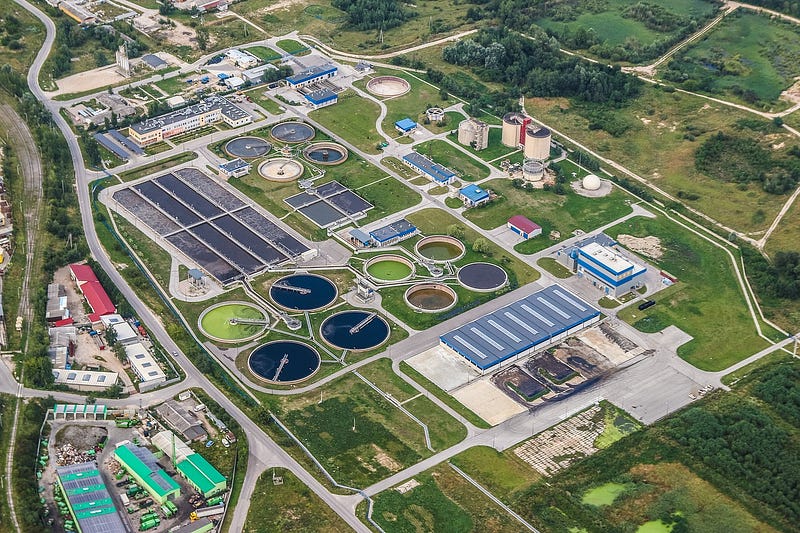
Extracting Energy from Wastewater
The third reason why wastewater is a vital resource is its potential for energy recovery. Remarkably, wastewater treatment plants can extract more energy from wastewater than they require for their operations. One cubic meter (approximately 35 cubic feet) of wastewater can yield around 9.7 kWh of energy, while treatment plants only need between 0.45 to 1.25 kWh for purification—indicating that wastewater contains roughly 12 times the energy required for its treatment.
About 60% of this energy is stored in the sewage sludge, which can be converted into biodiesel. The remaining energy is present in the water itself in various forms:
- Thermal energy: Related to the water's temperature, high-temperature water can release thermal energy using a heat pump, which transfers heat from a cooler area to a warmer one.
- Potential energy: Associated with the water's elevation, higher positioned water possesses greater potential energy, which can be harnessed through hydropower, spinning turbines as it flows from a height.
- Chemical energy: Derived from organic material in the water, this energy can be captured as biogas through microbial decomposition.
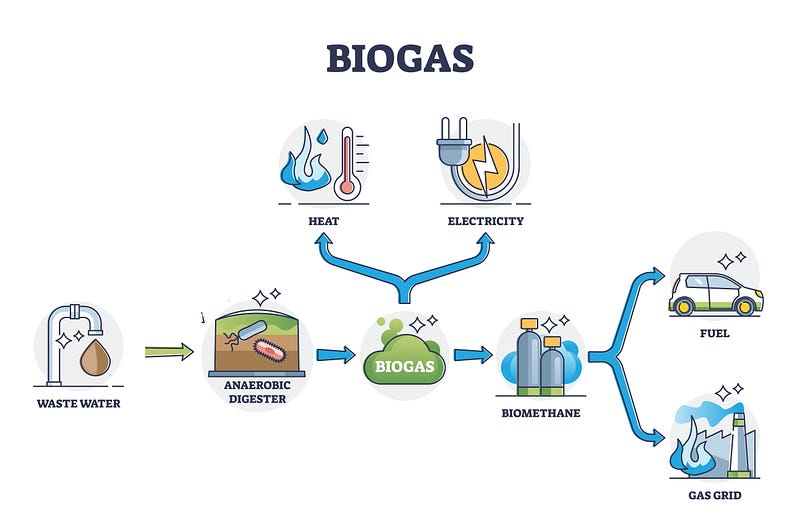
Conclusion
In conclusion, wastewater is a precious resource that enables us to reduce our dependence on natural water sources, repurpose sewage sludge, and recover energy.
Steps We Can Take
Here are some practical actions we can implement to reduce wastewater production and combat water pollution:
- Collecting water from the shower while waiting for it to heat up to water plants
- Using bathwater for flushing toilets
- Fully loading dishwashers and washing machines before use
- Turning off the faucet while brushing teeth
- Shutting off the shower while lathering hair
- Taking shorter showers
- Skipping daily showers in favor of washing at the sink
- Capturing water in the sink during dishwashing instead of letting it run
- Only partially opening the tap during showers
- Installing water-saving showerheads
- Properly disposing of chemicals and waste rather than flushing them
- Returning unused medications to pharmacies for safe disposal
- Opting for eco-friendly cleaning products
Do you have additional suggestions for reducing wastewater or preventing water pollution? Please share your ideas in the comments to inspire others.
Credit
This article is based on: Guerra-Rodríguez, S., Oulego, P., Rodríguez, E., Singh, D. N., & Rodríguez-Chueca, J. (2020). Towards the implementation of circular economy in the wastewater sector: Challenges and opportunities. Water, 12(5), 1431.